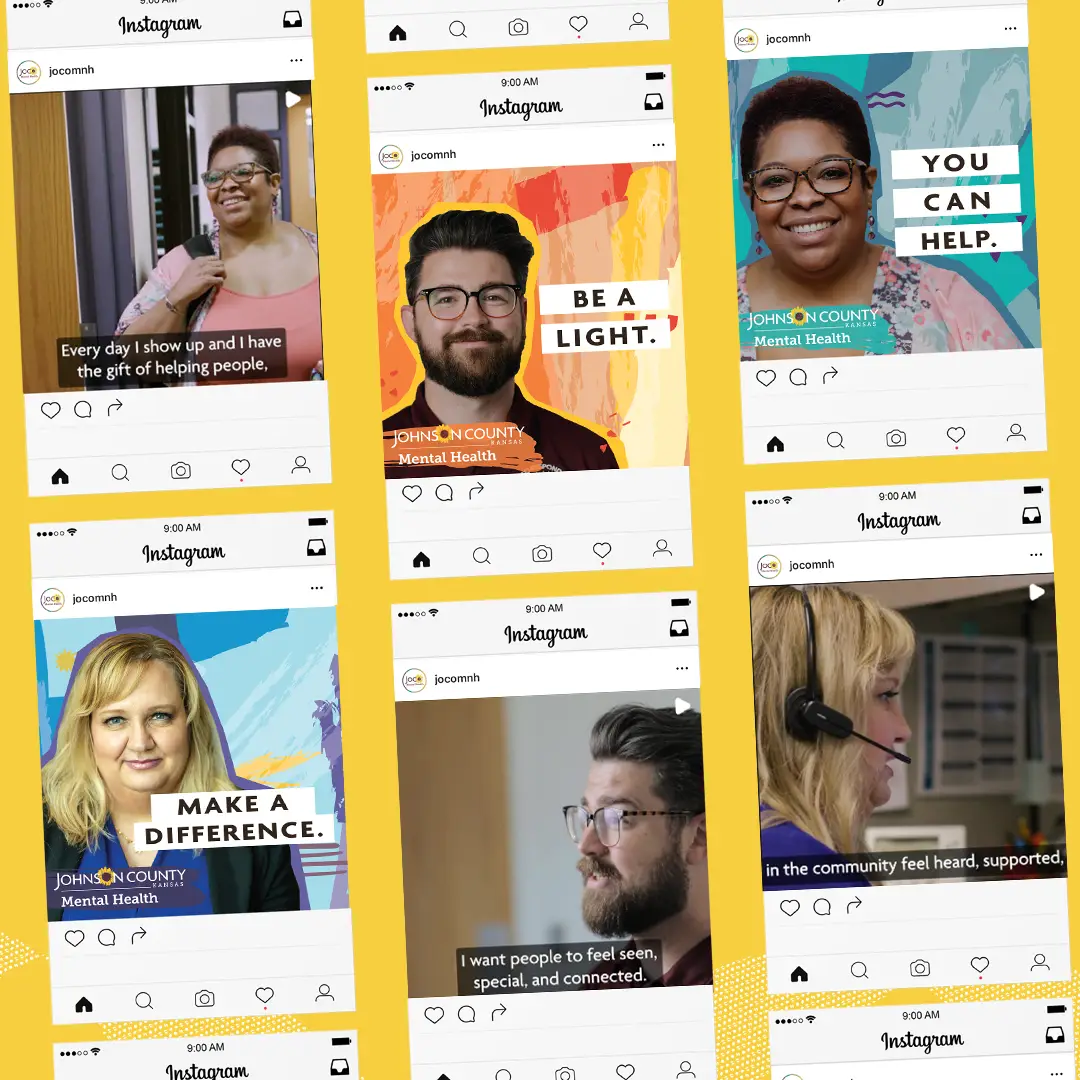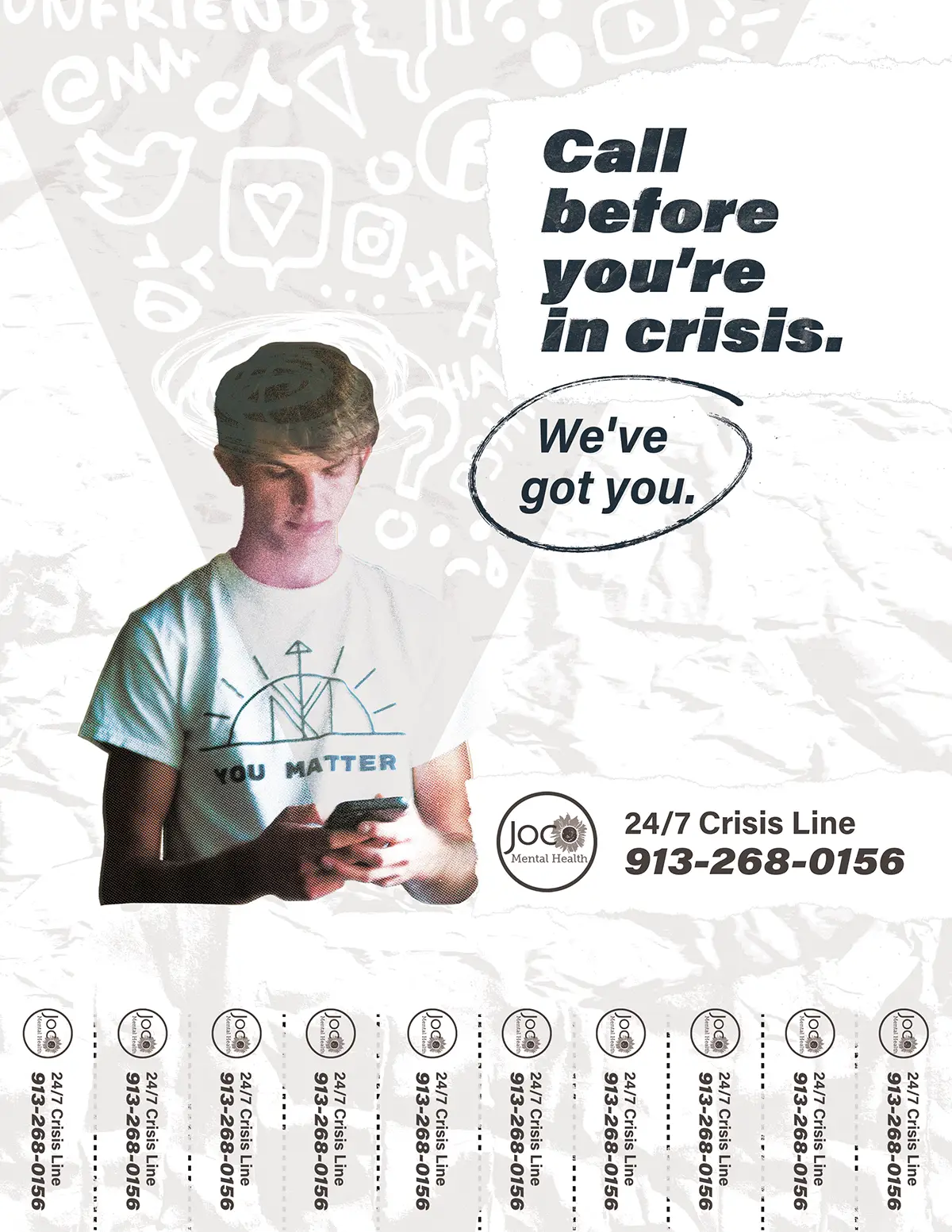Johnson County Mental Health
Case Study: Johnson County Mental Health
Government Agency, Mental Health
Capabilities Employed: Strategy Development, Creative Direction, Branding, Video Production, Graphic Design, Script Writing, Social Media Strategy
Client Intro

Idea Summary
Our Work
For the See A Helper and Be A Helper campaigns in 2022, Overflow extended on the previous campaign to keep a consistent aesthetic as the mental health center shifted messaging to include more information across their entire suite of services. This project involved working closely with real employees of the mental health center to share their personal stories, what motivates them to do the work they do and what they’re passionate about outside of work. The goal was to broadly communicate the common humanity that mental health professionals share with the individuals they’re serving in the community. In addition, the Be A Helper campaign aimed to bring new talent to the organization, helping prospects understand the work better and where they might find a role within the organization.



